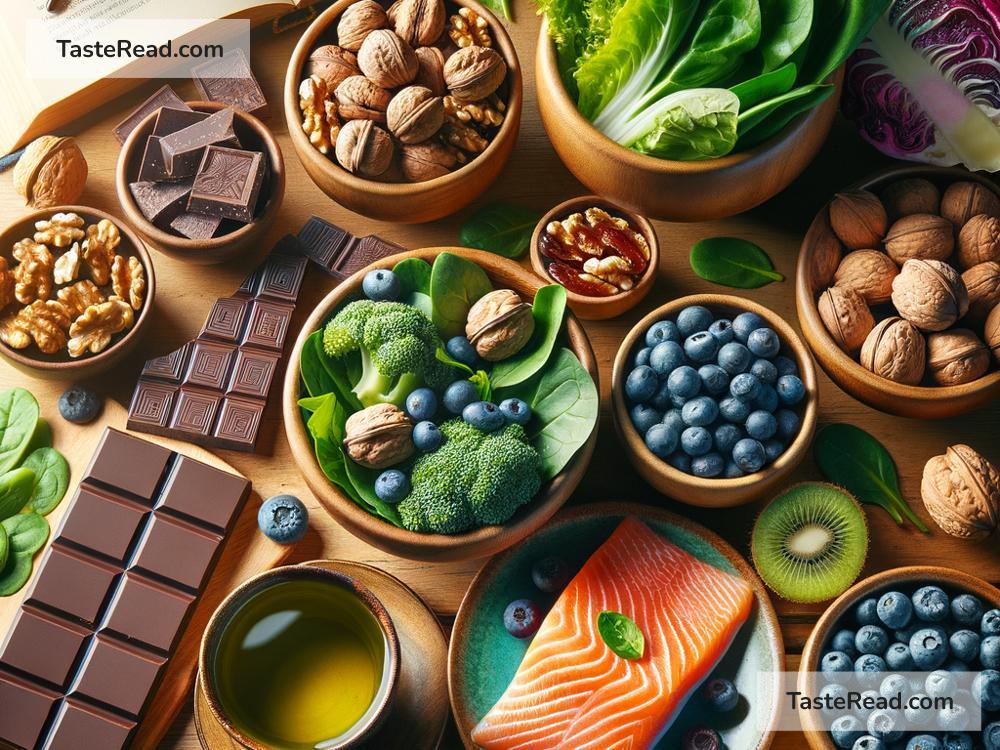Boost Your Brain: Foods That Help Improve Information Processing
Have you ever had trouble concentrating or felt as if your brain was working too slowly? The good news is that what you eat can help sharpen your mind and boost the way you process information. Certain foods are like fuel for your brain—they help improve memory, focus, learning, and overall mental performance. Let’s explore some simple and tasty options that can keep your brain working at its best.
Why Food Matters for Your Brain
Just like how the right kinds of food can keep your body healthy, your brain also benefits from proper nutrition. Your brain uses a lot of energy; in fact, it requires more than 20% of your daily calories to function! The nutrients in your diet support brain cell growth, communication, and overall cognitive function. If you eat the right foods consistently, you can improve your ability to process information, make decisions, and stay focused.
Foods That Supercharge Your Brain
-
Blueberries: Tiny but Mighty
Blueberries are often called brain food—and for a good reason. These small fruits are packed with antioxidants, which protect your brain from damage caused by stress and aging. Antioxidants also improve communication between brain cells, making it easier for you to process and remember information. You could snack on blueberries, add them to your yogurt, or blend them into a smoothie for a tasty treat. -
Fatty Fish: The Omega-3 Hero
Salmon, tuna, mackerel, and sardines are examples of fatty fish that are rich in omega-3 fatty acids. Omega-3s are essential for brain health because they help build and repair brain cells. They also improve focus and reduce mental fatigue. If fish isn’t your favorite food, you can try nuts and seeds like chia seeds, walnuts, or flaxseeds—they have plant-based omega-3s too. -
Eggs: The Memory Booster
Eggs are a simple breakfast option, but their benefits for your brain are impressive. They contain choline, a nutrient that helps produce memory-related chemicals in your brain. Choline is also important for learning and focus. The yolk is where most of the choline is found, so don’t skip it! Scrambled, boiled, or mixed into your favorite recipe, eggs are a versatile way to support your brain. -
Dark Chocolate: A Sweet Brain Treat
Chocolate lovers, rejoice! Dark chocolate, when eaten in moderation, can improve brain function. It contains cocoa flavonoids, which help increase blood flow to the brain and boost thinking skills. Dark chocolate also releases endorphins, chemicals that make you feel happy—this can help reduce stress, which often makes information processing harder. -
Leafy Greens: A Brain Powerhouse
Spinach, kale, and other leafy greens are incredible brain boosters. They are rich in nutrients like vitamin K, folate, and beta-carotene, which protect your brain cells and slow mental decline. Eating leafy greens regularly can improve concentration and memory. Add them to salads, soups, or smoothies to get a healthy dose of these nutrients. -
Nuts and Seeds: Crunchy Brain Snacks
Nuts and seeds like almonds, walnuts, sunflower seeds, and pumpkin seeds contain healthy fats, vitamin E, and antioxidants that improve brain health. Vitamin E helps prevent mental decline as you age, while the protein in nuts and seeds gives you steady energy to focus longer. Keep a handful of mixed nuts or seeds as a snack whenever you need a brain boost. -
Whole Grains: Slow and Steady Energy
Your brain needs energy to work efficiently, and that energy comes from carbohydrates. But not all carbs are created equal! Whole grains like oats, quinoa, brown rice, and barley provide slow and steady energy without causing sugar spikes. They also help improve blood flow to the brain so you can stay alert and focused. -
Avocado: The Healthy Fat Friend
Avocados are full of healthy fats, which are essential for maintaining brain health. They help improve blood flow, which supports important brain functions like critical thinking and problem-solving. Avocados also contain potassium that can lower blood pressure, helping create a calmer environment for your brain to process information.
How to Turn These Foods Into Brain-Friendly Meals
You don’t need to eat these foods separately to enjoy their benefits. Try combining them to create meals that are delicious and packed with brain-boosting power! For example:
– Make a smoothie with blueberries, spinach, avocado, and a sprinkle of chia seeds.
– Cook an omelet with leafy greens and a side of whole-grain toast.
– Enjoy a salmon salad topped with walnuts and a drizzle of olive oil.
By mixing and matching these foods, you’ll support your brain every day while enjoying tasty meals.
Additional Tips for Brain Health
While food plays a key role, there are other ways to improve information processing:
– Stay hydrated: Drink plenty of water, as even mild dehydration can slow your brain down.
– Exercise regularly: Physical activity increases blood flow to your brain and boosts mental performance.
– Get enough sleep: A rested brain processes information faster and remembers things better.
Conclusion
Your brain is like a high-performance engine—it needs the right fuel to function at its best. Including brain-boosting foods like blueberries, fatty fish, eggs, and leafy greens in your diet can make a big difference. Not only will you improve how you process information, but you’ll also feel more focused and energized throughout the day. Start eating for your brain, and you’ll notice the benefits in no time!


